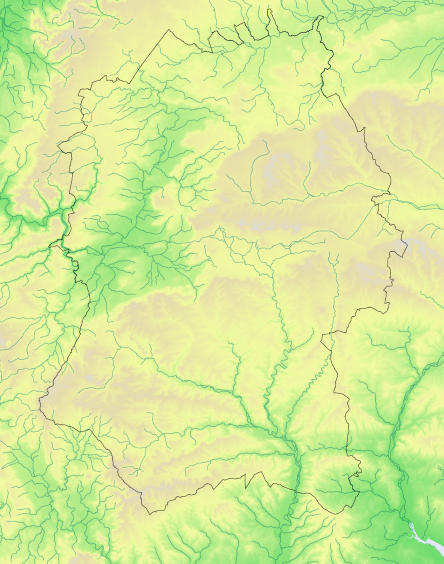Woodcock Scolopax rusticola
Winter distribution change
Decreasing resident, under-recorded winter visitor from north/east Europe
Atlas species lists
- Breeding distribution 1995–2000
- Summer abundance 1995–2000
- Winter distribution 1995–2000
- Winter abundance 1995–2000
- Breeding distribution 2007–2012
- Summer abundance 2007–2012
- Winter distribution 2007–2012
- Winter abundance 2007–2012
- Breeding distribution change
- Summer abundance change
- Winter distribution change
- Winter abundance change
More Woodcock maps
- Breeding distribution 1995–2000
- Summer abundance 1995–2000
- Winter distribution 1995–2000
- Winter abundance 1995–2000
- Breeding distribution 2007–2012
- Summer abundance 2007–2012
- Winter distribution 2007–2012
- Winter abundance 2007–2012
- Breeding distribution change
- Summer abundance change
- Winter distribution change
- Winter abundance change
More maps for this atlas
Map explanation
This map shows the changes which occurred in the winter distribution of the species between 1995-2000 and 2007-2012, but only in the limited selection of tetrads that were surveyed in winter for Birds of Wiltshire (Wiltshire Ornithological Society 2007).
Key
Status
Nos tetrads

Absent to present
73
16%

Present in both
5
1%

Present to absent
7
2%

Not surveyed
Woodcocks breed in moist woodlands in an area extending from some Atlantic islands, right across Eurasia to Japan. They winter in western Europe, the Mediterranean region and southern Asia. With their cryptic plumage and largely nocturnal activity they are notoriously difficult to count and all statistics relating to their population numbers need to be treated with caution.
In Great Britain in the 18th century they were considered to be primarily winter visitors that only occasionally nested, but by the end of the 19th century they were known to be breeding in nearly every county. The greater availability of suitable breeding habitat provided by newly created conifer plantations caused the upward trend to continue until a peak in the 1960s, since when they appear to have been in decline.
In Wiltshire, Woodcocks were regarded until the mid 20th century as fairly common winter visitors with only a few staying to breed. Such statistics as are available suggest that the summer numbers held up until the end of the century. The 1968-72 Breeding Atlas recorded them in 14 of the county’s 33 core 10km squares while the 1988-91 Breeding Atlas had them in 15 of the squares. Birds of Wiltshire recorded them in twelve 10km squares, with breeding probable or confirmed in a total of 24 tetrads out of the 57 where they were found to be present. The numbers then appear to have dropped sharply: WTA2 recorded them present in only 22 tetrads in the breeding season, with breeding probable or confirmed in 13.
The winter figures on the other hand appear to have declined by the end of the century but then increased again: the 1981-84 Winter Atlas recorded them in twenty-eight 10km squares, Birds of Wiltshire recorded them in only 3% of tetrads surveyed, equivalent to about 30 tetrads in the county as a whole, whereas WTA2 a decade later recorded their presence in 170 tetrads - nearly 20% of the total.
References
The following references are used throughout these species accounts, in the abbreviated form given in quotation marks:
“1968-72 Breeding Atlas” – Sharrack, J.T.R. 1976: The Atlas of Breeding Birds in Britain and Ireland. T. & A. Poyser
“1981-84 Winter Atlas” – Lack, P.C. 1986: The Atlas of Wintering Birds in Britain and Ireland. T. & A. Poyser
“1988-91 Breeding Atlas” – Gibbons, D.W., Reid, J.B. & Chapman, R.A. 1993: The New Atlas of Breeding Birds in Britain and Ireland 1988-91. T. & A. Poyser
“Birds of Wiltshire” – Ferguson-Lees, I.J. et al. 2007 : Birds of Wiltshire, published by the tetrad atlas group of the Wiltshire Ornithological Society after mapping fieldwork 1995-2000. Wiltshire Ornithological Society.
“Bird Atlas 2007-2011” – Balmer, D.E., Gillings, S., Caffrey, B.J., Swann, R.L., Downie, I.S. and Fuller, R.J. 2013: Bird Atlas 2007-2011: the Breeding and Wintering Birds of Britain and Ireland
“WTA2” – ("Wiltshire Tetrad Atlas 2 ") the present electronic publication, bringing together the Wiltshire data from “Birds of Wiltshire” and “Bird Atlas 2007-11”, together with data from further fieldwork carried out in 2011 and 2012.
"Hobby" - the annual bird report of the Wiltshire Ornithological Society.
.

